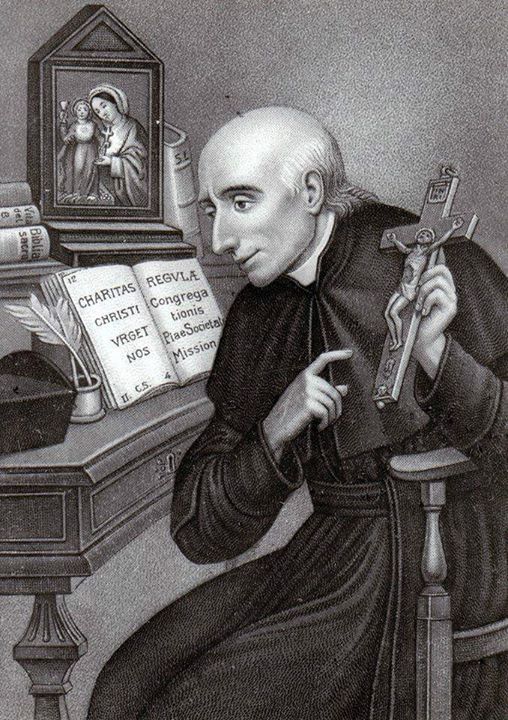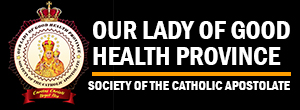St. Vincent Pallotti, the founder of the Union of the Catholic Apostolate, was born on April 21, 1795 in Rome as the third of the ten children of Peter Paul Pallotti (1755 – 1837) and Mary Magdelene de Rossi (1765 – 1827). Due to his poor health, he could not become a Capuchin as he originally wanted. However, he remained connected throughout his life to the spirituality of St. Francis of Assisi, in whose tradition the Capuchin Order stands. Contemporaries described him as follows: small, slightly stooped, lean and pale, bald and high forehead, piercing dark blue eyes and kind. He always walked quickly, was mostly polite and was careful not to get on anyone’s nerves. He was well known in Rome. Many people were attracted to him, and he was greatly respected.
.
St. Vincent lived through a turbulent time in Italian history, i.e., in the post-French Revolution era. After his initial studies, he was a student at the Sapienza University from 1814 – 1818 and graduated with Doctorates in Philosophy and Theology. He was ordained in 1818. In 1835, he founded the Union of the Catholic Apostolate, a pious society, which attempted to bring together lay people, priests and religious to collaborate in the revival of faith and charity, aimed at apostolic action. Significant among the apostolic activities of this society was social service for the poor and the needy, in the city of Rome and in the missions abroad. This Society’s service to the suffering humanity during the Cholera Epidemic that ravaged the city of Rome in 1837 is note worthy. To animate the Union of the Catholic Apostolate and its activities, he founded the Society of the Catholic Apostolate, a community of Priests and Brothers, and a community of sisters. St. Vincent died on January 22, 1850. He was beatified after a century in 1950, and was canonized a saint on January 20, 1963, during the Second Vatican Council by Pope John XXIII
.
As a Saint, he lived in such an intimate union with God that at only 45 years of age, he reached the highest degree of Mysticism: Transforming Union and Spiritual Marriage. As the Founder of the Priests and Brothers, Sisters and Associates of the Society of the Catholic Apostolate, he brought into the mainstream of the Church the idea of unity, coordination and participation of all, especially the laity who are essential elements of universal and effective apostolic work within the Church.


